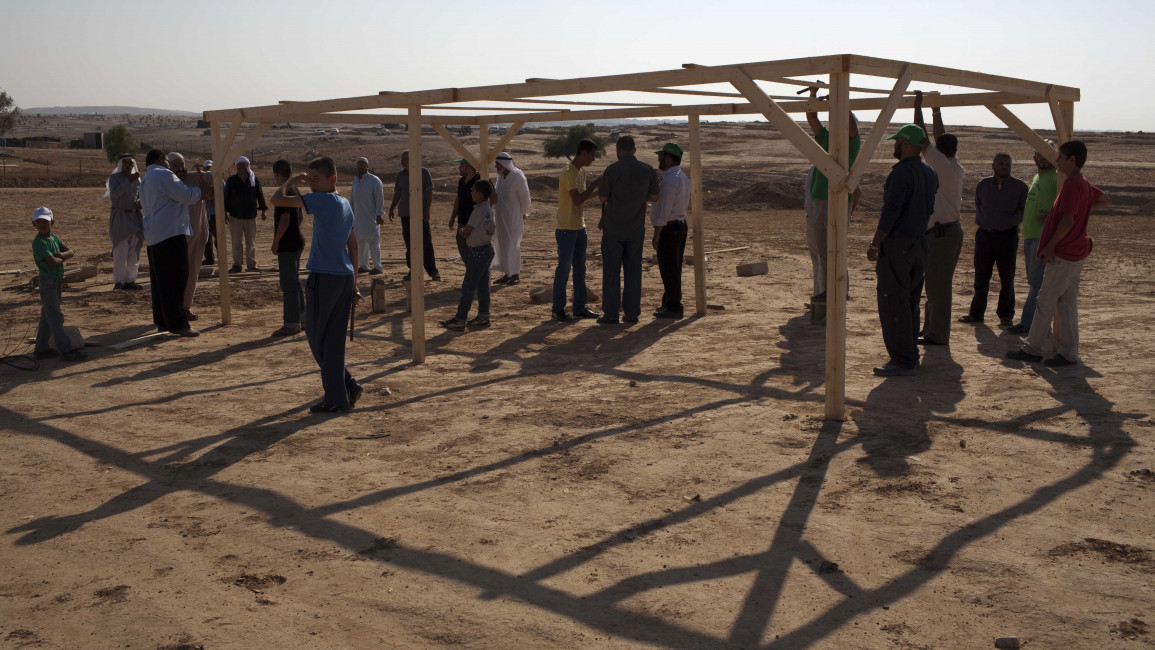Israeli forces destroy Palestinian Bedouin village of Al-Araqib for 211th time
Israeli forces on Sunday destroyed the Palestinian Bedouin village of Al-Araqib for the 15th time this year, according to local Palestinian reports.
Israeli forces raided homes and forcibly removed its residents, including women and children, and proceeded to raze residents’ homes and shelters, according to the Palestinian Wafa agency.
The village, located in the Negev (Naqab) desert in southern Israel and 8 kilometres north of the city of Beer’sheva, has been destroyed at least 211 times since 2010, in attempts to expel its Palestinian inhabitants.
Israeli forces have targeted the village under the pretext that it is constructed without legal authorisation. However, Palestinian residents return every time it has been destroyed, in defiance of Israeli efforts to displace them from their homes.
The village was last destroyed earlier this month, on 5 December, and previously in November, according to Turkish news outlet TRT.
Home to at least 22 families, Al-Araqib is classified as one of the Negev desert’s many "unrecognised Bedouin villages" deemed illegal by the Israeli government. Israel claims that the area is "state land".
The population of Al-Araqib numbers around 86, according to Wafa, where residents live off farming and raising livestock.
Homes in the village are mostly made from wood, plastic and corrugated iron.
Land and homes in Al-Araqib were purchased and constructed during the Ottoman period in Palestine, according to Israeli NGO Zochrot. Residents in the 1970s were able to prove their ownership to at least 1,250 dunums (acres) of land through legal means.
Israeli authorities routinely attempt to displace Bedouins from their homes in the Negev desert, threatening to destroy their homes and inflicting violence on residents.
Palestinian Bedouins, who number around 240,000 in the desert, are faced with additional major human rights violations such as a lack of running water and electricity, as well as limited access to health facilities.
In January this year, Israeli forces arrested dozens of Palestinian protesters demonstrating against Israeli attempts to forcibly remove residents, to make way for a tree planting project by the controversial Jewish National Fund (JNF).



